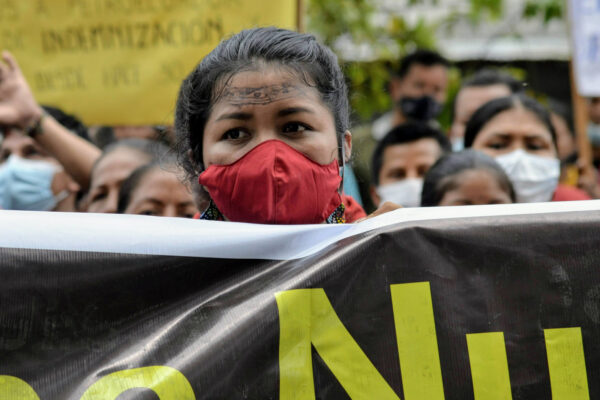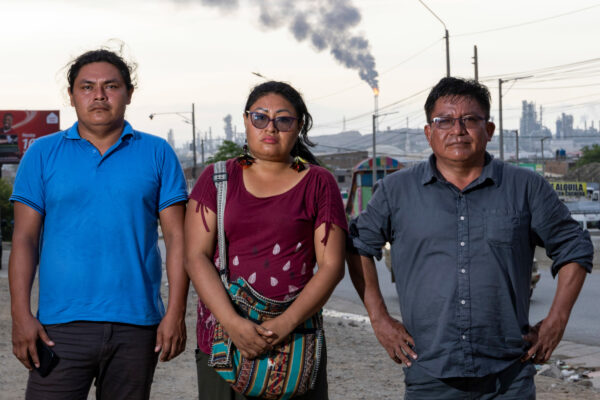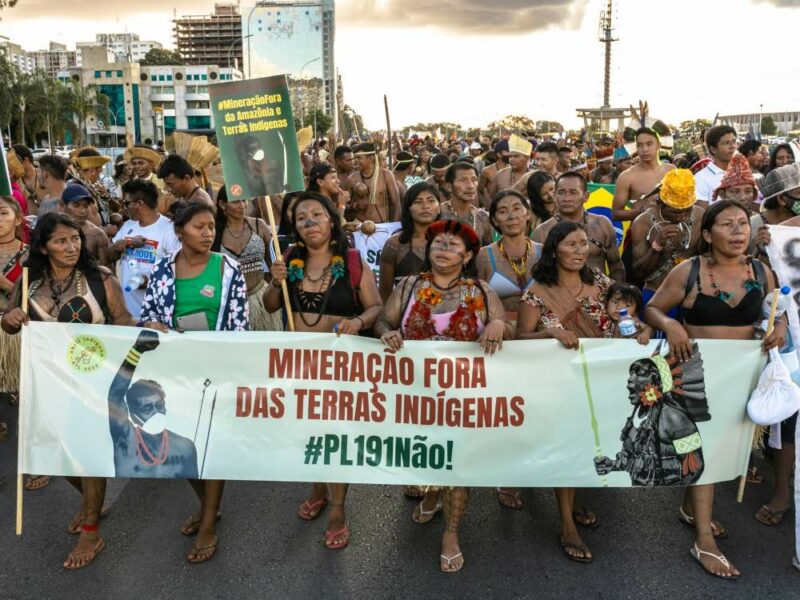A much-anticipated decision by Brazil’s Supreme Court yesterday handed a critical victory to the country’s indigenous peoples. In unanimous rulings on two disputed indigenous land-titling cases, the Court dismissed a legal opinion issued by the Attorney General and endorsed by President Michel Temer, which argued for the rejection of land claims by indigenous peoples unless they inhabited their traditional territories at the time Brazil’s 1988 Constitution was ratified.
“This is a very important victory for our people and our family…who are fighting for health and territory,” said Adilio Benites, a Guarani Kaiowá leader celebrating the decision in Brasilia, after holding an all-night vigil outside of the Supreme Court.
The Attorney General’s opinion, which argued for the widespread application of a legal concept known as marco temporal (“time limit”), deliberately ignored the fact that many native communities were brutally driven off their ancestral lands, especially during the decades of military dictatorship that preceded the current constitution, and many were only able to return to their homes and title their territories in the years that followed.
“The Supreme Court sent a very clear message that the territorial rights of indigenous people are inalienable and must be respected,” said Luís Enrique Eloy, legal counsel to the Articulation of Brazil’s Indigenous Peoples (APIB). The Court “made it clear that marco temporal does not apply to indigenous territories.” Mr. Eloy also emphasized that indigenous rights cannot be undermined in the name of economic and political interests.
President Temer endorsed the marco temporal in exchange for support from Brazil’s powerful agribusiness congressional bloc, known as the ruralistas, in a recent vote on whether to investigate the president on serious corruption charges. The legal opinion would have the effect of legitimizing decades of military and corporate abuses against indigenous peoples and directly benefitted the ruralista agenda by negating native territorial rights and greenlighting land-grabbing, industrial agriculture, and infrastructure projects on indigenous ancestral territory.
“The Court’s endorsement of the legal opinion would have jeopardized the survival of Brazil’s indigenous peoples and threatened the vast, climate-regulating forests they steward,” said Christian Poirier at Amazon Watch.
“Today’s historic rulings not only uphold Brazil’s constitutional recognition of indigenous land rights and mark an crucial victory for Brazil’s indigenous peoples,” Poirier continued. “They also provide an important check on the Temer administration’s attempts to serve a retrograde and greedy agribusiness elite with proven disregard for human rights and environmental balance.”
While today’s decisions do not definitively end the menace posed by marco temporal to indigenous lands and sovereignty, they deeply undermine its fundamental arguments by upholding landmark territorial titling cases in the state of Mato Grosso. By ruling against the arguments of attorneys from Mato Grosso, who claimed that indigenous occupation of titled territories amounted to “appropriation” of lands for which the state was entitled to indemnification, the Court established that indigenous peoples have traditionally occupied, and are entitled to, all of the territories in question.
In a key concurrence, Supreme Court Minister Roberto Barroso argued that marco temporal does not apply to all of Brazil’s indigenous territories. Juliana de Paula Batista, a lawyer with Brazil’s Socio-Environmental Institute (ISA), says that Barroso’s concurrence demonstrates important reticence on the part of the Court to apply marco temporal to land titling cases beyond the Raposa Serra do Sul ruling for which it was originally written. However, she warned, the issue “will definitely return to be ruled upon more directly in upcoming cases.”
Yesterday’s decisions comes as indigenous rights and environmental protections are under unprecedented assault in Brazil. While the Court’s decisions shelved the application of marco temporal in two specific instances and set an important legal precedent, dozens of other rollbacks on socio-environmental safeguards are advancing apace, including the legalization of land grabbing, the slashing of protections on Amazonian forests, and the gutting of the country’s environmental licensing process for development projects.













